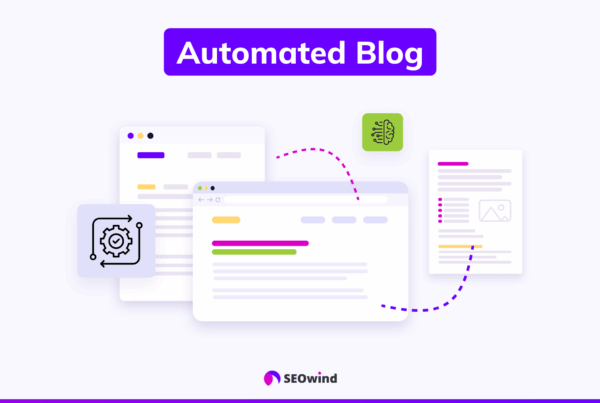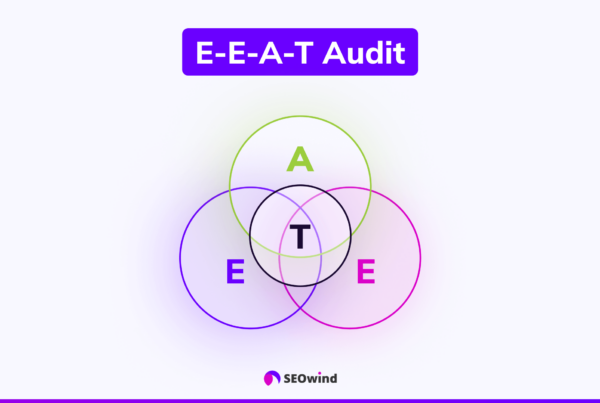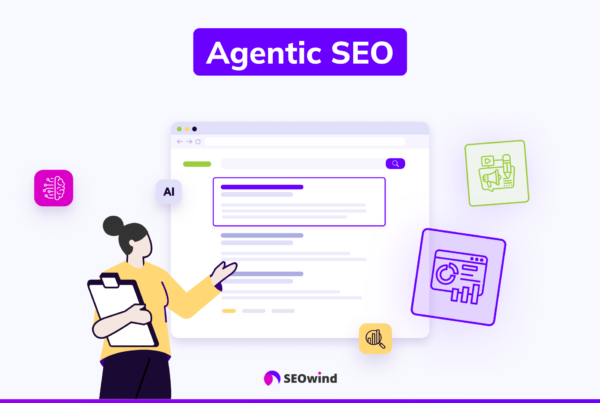Search engine optimization has become essential for business visibility. Yet, many agencies struggle to offer comprehensive SEO services due to limited resources, expertise, or time constraints. White-label SEO provides a strategic solution, enabling agencies to deliver professional SEO services under their brand without the need to build an in-house team. This guide explores how white-label SEO partnerships can help you expand your service offerings, meet client needs, and efficiently grow your business.
White Label SEO Basics
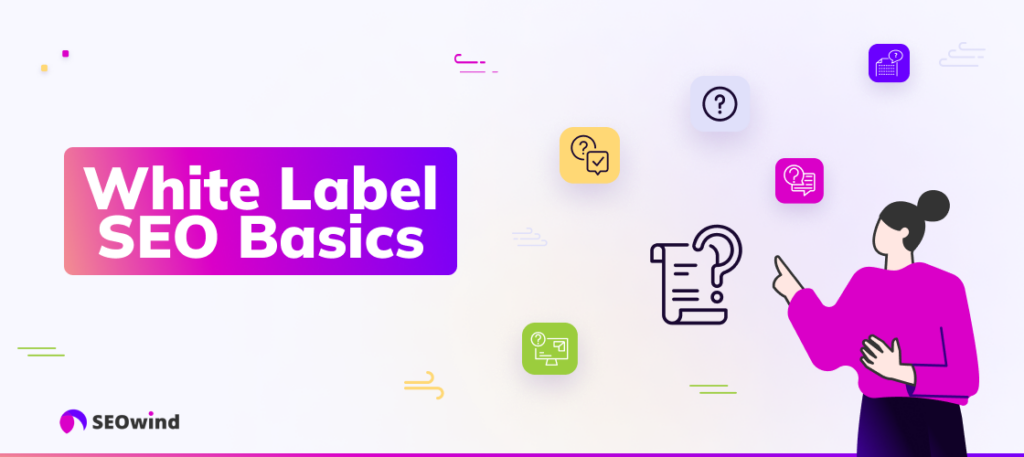
What is White Label SEO?
White-label SEO is a business model in which a specialized SEO company provides services to agencies or businesses, allowing them to rebrand and resell these services under their name. This arrangement enables agencies to provide expert SEO solutions without incurring the costs of extensive in-house resources or expertise.
According to Promethean Research’s 2023 Digital Agency Industry Report, smaller agencies with fewer than 10 employees typically achieve the highest profit margins in the industry, often by leveraging white-label partnerships for specialized services, such as SEO.
The white-label SEO process follows a straightforward but effective structure:
- Partnership Formation: An agency partners with a white-label SEO provider, selecting specific services to offer clients
- Rebranding: The provider delivers SEO services and reports under the agency’s brand
- Client Management: The agency maintains direct client communication while the provider implements SEO strategies behind the scenes
- Reporting: The provider generates detailed, customizable reports that the agency presents to clients under their branding
This arrangement delivers dual benefits: agencies can rapidly expand their service offerings without extensive training or hiring, while clients receive expert SEO services from a brand they already trust.gency’s unique understanding of their clients’ needs, resulting in a powerful synergy.
The Strategic Advantages of Adopting White Label SEO Services
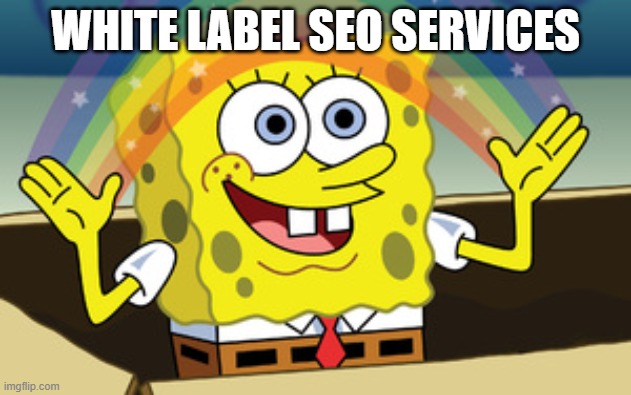
Proven Performance and ROI
White-label SEO services deliver measurable results that justify investment. According to recent industry data, 70% of marketers see SEO as more effective and investment-worthy than PPC. This effectiveness stems from specialized providers staying current with algorithm changes and implementing data-driven strategies.
The median profit-based ROI for successful advertising campaigns reached a remarkable $2.50 for every dollar spent in 2024, with the median revenue-based ROI standing at $4.33 per dollar invested, highlighting the potential return on SEO investments when executed properly.
Cost-Effective Scaling
White-label partnerships offer significant financial advantages compared to building an in-house SEO team. The cost differential can be substantial:
| Resource | In-House Team (Annual) | White Label Partnership (Annual) |
|---|---|---|
| Salaries (SEO specialists) | $180,000-$250,000 | N/A |
| Tools and software | $12,000-$24,000 | Included |
| Training and development | $5,000-$15,000 | Included |
| Management overhead | $40,000-$60,000 | Minimal |
| Total Cost | $237,000-$349,000 | $36,000-$120,000 |
These figures demonstrate why white label partnerships are particularly valuable for growing agencies looking to maximize profit margins.
Access to Specialized Expertise and Advanced Tools
White label SEO providers invest in cutting-edge tools and technology that would be prohibitively expensive for individual agencies. This includes enterprise-level keyword research platforms, competitive analysis tools, and advanced reporting systems.
According to Promethean Research’s industry report, agencies spend an average of 3.7% of revenue on tools and applications (excluding passthrough spend). White label partnerships bundle this technology cost into their service pricing, providing access to enterprise-grade solutions at a fraction of direct licensing costs.
Enhanced Client Retention Through Specialized Onboarding
The best white label SEO providers implement specialized onboarding processes that significantly impact client retention. Studies show that agencies with structured onboarding processes achieve substantially higher client satisfaction:
- Agencies implementing personalized welcome processes and clear expectation setting see higher client retention rates
- Partners that deliver immediate value (such as initial SEO audits) during onboarding increase client satisfaction
- Establishing regular reporting schedules and dedicated account managers from day one contributes to stronger long-term client relationships
Real-World Client Success Stories
White label SEO partnerships have delivered remarkable results across various industries. For example, Bambi Baby achieved a 102% increase in organic revenue and 138% boost in page-one rankings through their partnership with OuterBox. Their white label SEO collaboration produced impressive metrics:
- 67% increase in organic transactions
- Over 1,200 new keywords ranking on Google’s first page
Similarly, Unboxme saw a 15,300% increase in page-one keywords and 440% growth in monthly organic traffic through their white label SEO relationship with Victorious, along with a 369% increase in revenue generated from organic search.
Key Services Provided by White Label SEO Partners
White-label SEO providers offer comprehensive solutions designed to improve online visibility and drive organic traffic. The best providers go beyond basic optimization to deliver integrated strategies that address the full spectrum of search marketing needs.
In-depth Keyword Research and Strategy
Modern white-label SEO goes beyond simply finding high-volume keywords. Today’s providers leverage AI-powered tools to:
- Identify semantic relationships between search terms
- Map keywords to specific stages of the customer journey
- Analyze search intent patterns to target content more precisely
- Monitor keyword difficulty and competition metrics
- Discover untapped long-tail opportunities with conversion potential
“Effective keyword research isn’t about volume alone. It’s about understanding the customer journey and aligning your content with search intent at every stage,” explains Tom Winter, founder of SEOwind.
On-page and Off-page Optimization
Effective white label SEO combines both on-page and off-page techniques:
On-page optimization includes:
- Technical auditing to identify and resolve crawl errors, indexing issues, and site speed concerns
- Schema markup implementation to enhance search visibility with rich results
- Content optimization for both search engines and user experience
- Internal linking strategies to distribute page authority efficiently
Off-page optimization focuses on the following:
- Strategic link-building through relevant, high-authority sources
- Brand mention monitoring and conversion to linked references
- Digital PR integration to earn authentic backlinks
- Local citation building and management
SEO Content Development
White-label providers typically offer sophisticated content development services leveraging both human expertise and AI capabilities:
- Comprehensive content gap analysis
- SEO-optimized content outlines and briefs
- Subject matter expert collaboration
- Long-form content creation with proper E-E-A-T signals
- Content refreshing to maintain relevance and rankings
Tom Winter, SEOwind founder, notes: “The most effective SEO content combines technical optimization with genuine expertise. White label providers need to facilitate subject matter expert input rather than just producing technically correct but ultimately shallow content.”
White-label SEO Audits and Reporting
Comprehensive white-label SEO includes detailed auditing and transparent reporting:
- SEO Audits: Thoroughly analyze technical health, content quality, backlink profiles, and competitive positioning
- Performance Tracking: Monitor key metrics, including rankings, traffic, conversions, and engagement
- White Label Reporting: Generate branded reports with customizable dashboards and visualization tools
According to industry research, comprehensive white-label reporting is one of the most valued aspects of these partnerships, with clients particularly appreciating visualization of progress over time.
Local SEO Management
For agencies serving local businesses, white label partners typically offer specialized local SEO services:
- Google Business Profile optimization and management
- Local citation building and cleanup
- Geo-targeted content development
- Review management and response strategies
- Local link-building from community sources
How to Choose a Good White-Label SEO Provider
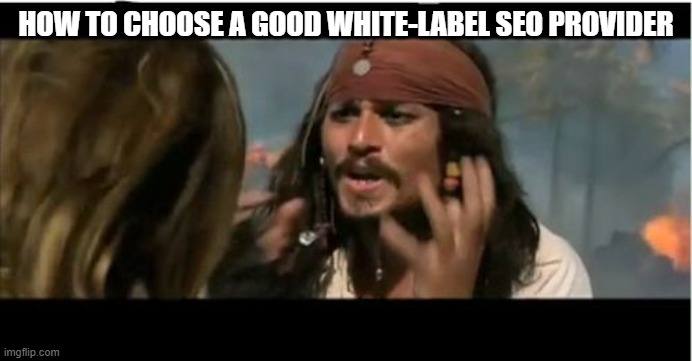
Selecting the right white-label SEO partner is crucial for delivering consistent results. The following evaluation criteria will help you identify providers that align with your agency’s needs and quality standards.
Proven Track Record and Domain Expertise
Assess potential partners using these key indicators:
- Ranking Performance: The provider’s website should demonstrate strong organic visibility for competitive keywords in the SEO industry
- Experience Duration: Look for providers with at least 5+ years of experience navigating algorithm changes
- Team Credentials: Research the backgrounds of key team members, particularly strategists and content leaders
- Case Studies: Request detailed case studies showing sustained results (not just initial gains)
When evaluating a white-label SEO partner, look beyond their sales pitch to their actual results. Ask for specific metrics from similar clients in your target industries.
Service Quality and Methodology
Evaluate the provider’s approach to SEO implementation:
- Transparency: They should clearly articulate their methodologies without resorting to “secret tactics” or guarantees of specific rankings
- Compliance: Confirm they follow Google’s Webmaster Guidelines and avoid risky practices
- Research Process: Assess their keyword research depth and competitive analysis methodology
- Quality Control: Ask about their content review process, particularly how they incorporate E-E-A-T signals
A reputable white-label SEO provider will be transparent about their methods. If they promise guaranteed rankings or use vague ‘proprietary techniques,’ that’s a major red flag.
Communication and Support Structure
Client satisfaction often hinges on responsive communication:
- Support Hours: Many top providers offer extended customer support hours
- Account Management: Inquire about dedicated account managers versus ticket-based systems
- Onboarding Process: Request details on their client onboarding procedure and timeline
- Response Times: Ask for their average response time for client requests and emergencies
Customization and Scalability
Assess how flexible the provider can be in meeting your specific needs:
- Service Tailoring: Can they customize services for different client industries?
- White Labeling Depth: Beyond reports, do they offer white-labeled dashboards, communication materials, and client-facing resources?
- Capacity: Can they handle sudden increases in volume if you land a large client?
- Technology: Do they provide APIs or integrations with standard agency tools?
Pricing Structure and Contract Terms
Understand the financial relationship thoroughly:
- Pricing Model Clarity: Request detailed breakdowns of what’s included in each service tier
- Contract Duration: Consider whether they require long-term commitments or offer month-to-month options
- Volume Discounts: Ask about pricing breaks as you scale up your client base
- Cancellation Terms: Understand the process and potential penalties for ending the relationship
Comparison of Top White-Label SEO Providers
The following comparison highlights the distinctive features of five leading white-label SEO providers, helping you identify which might best suit your agency’s needs:
| Provider | Core Strengths | Unique Features | Pricing Model | Ideal For |
|---|---|---|---|---|
| SEOwind | AI-powered content creation with human expertise | CyborgMethod™, Multi-Agent AI system | Subscription plans with content credits | Content- and SEO-focused agencies Agencies interested in AI implemenation |
| DashClicks | Comprehensive marketing dashboard | One-click purchasing, automated systems, white label dashboard | Monthly subscription + service fees | Full-service agencies |
| Semrush | Data-rich SEO tools and analysis | Competitive research depth, white label reporting | Tiered subscriptions | Data-driven agencies |
| The HOTH | Diverse à la carte services | White label reports, 12+ years experience | À la carte and package options | Growing agencies |
| SEOReseller | Full-spectrum SEO fulfillment | 386.4M+ visits driven annually, white label dashboard | Tiered packages with monthly retainers | Resellers and consultants |
SEOwind
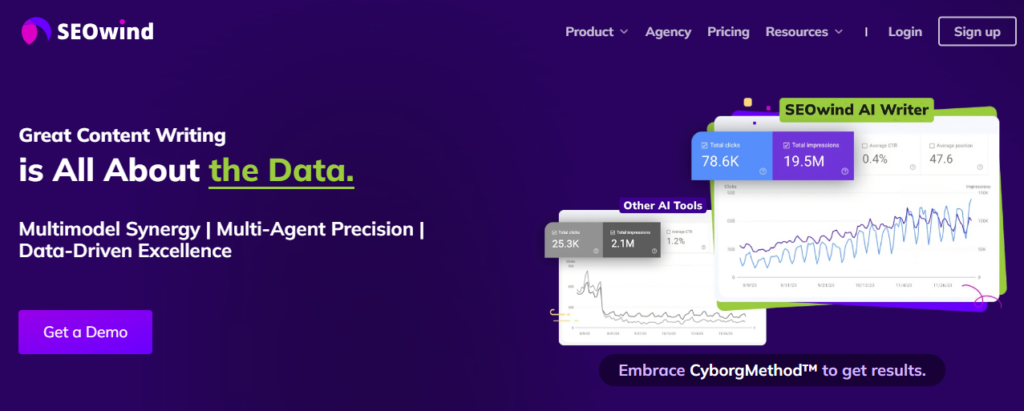
SEOwind provides an AI-powered content creation platform that enables agencies to scale their SEO content production while maintaining high-quality standards. While not a traditional white-label provider, its tools significantly enhance SEO content operations.
Key Differentiators
- Combines AI capabilities with human expertise through its proprietary CyborgMethod™
- Employs Multi-Agent AI technology to make best decisions
- Emphasizes research-first approach with significant effort focused on content planning
- Allows for customizable brand tone of voice integration
- Integrates internal and external
Best for: Digital marketing agencies and content creators who need to scale high-quality, SEO-optimized content production efficiently.

DashClicks
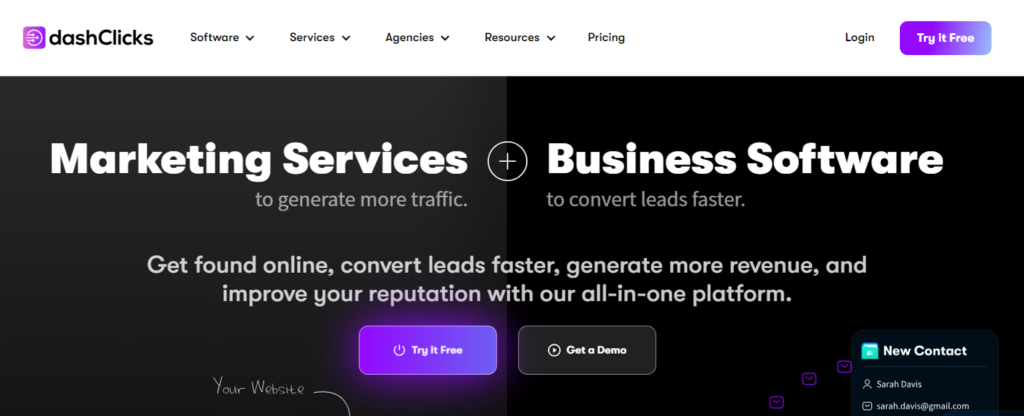
DashClicks offers a comprehensive white-label marketing platform with robust SEO capabilities and client management tools.
Key Differentiators:
- An all-in-one platform covering multiple digital marketing services
- Proprietary white label dashboard for client management
- Dedicated account manager support
- One-click purchasing feature and automated systems for improved efficiency
Best For: Growing agencies looking to offer multiple digital marketing services under one roof with streamlined operations.digital marketing solutions to their clients while maintaining a lean operational structure.
Semrush
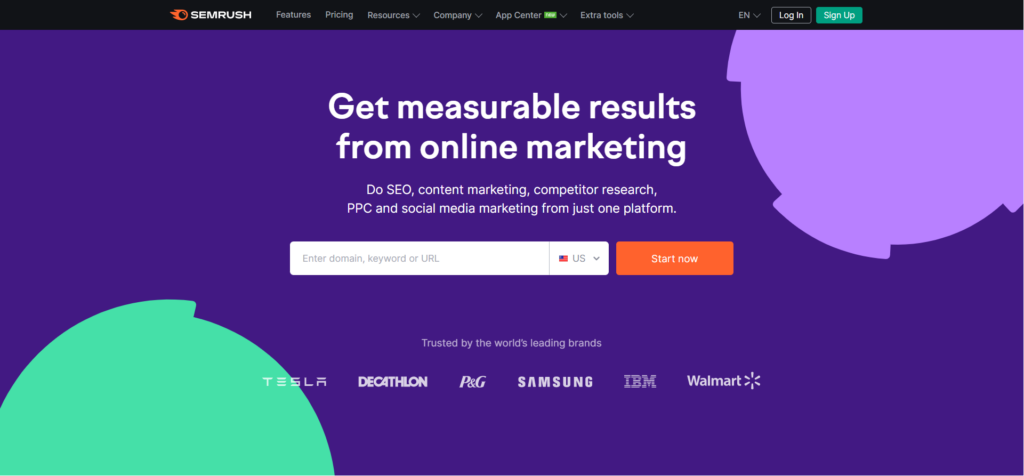
Semrush offers enterprise-level SEO tools that can be white-labeled for client reporting and management.
Key Differentiators:
- Comprehensive competitive research capabilities
- Regular feature updates aligned with algorithm changes
- Extensive educational resources for agency training
- Data visualization tools for client presentations
Best For: Data-driven agencies that prioritize in-depth analysis and comprehensive reporting.ignificantly enhance an agency’s perceived value and expertise in the eyes of its clients. However, to fully leverage Semrush’s potential, agencies should be prepared to invest time in learning the platform and potentially allocate a higher budget compared to some other white-label SEO solutions.
The HOTH
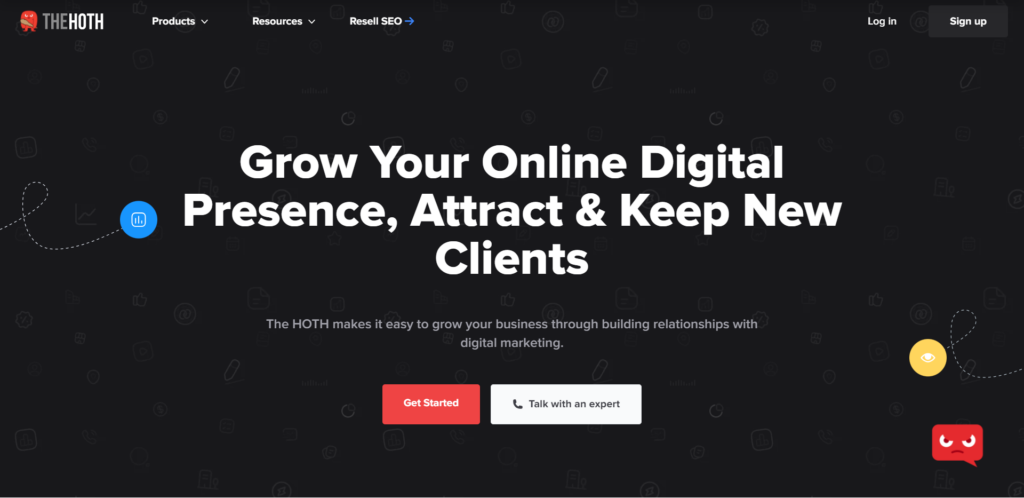
The HOTH (which stands for Hittem Over The Head) is a well-established white label SEO provider known for its comprehensive range of services and user-friendly approach.
Key Differentiators:
- White-Label Reports with 100% branding customization
- 12+ Years of Agency Fulfillment experience
- Flexible à la carte services alongside package options
- Strong local SEO specialization
Best For: Agencies seeking flexible service options, particularly those focusing on local business clients.erm strategy and balance the convenience of outsourcing with the development of in-house expertise.
SEOReseller
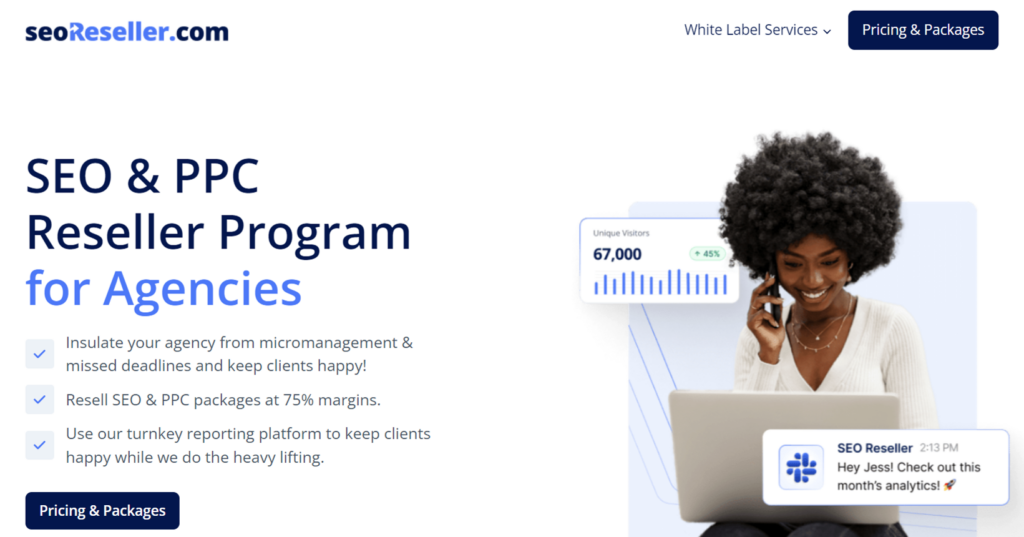
SEOReseller provides a comprehensive white-label SEO fulfillment service backed by a robust reporting platform.
Key Differentiators:
- 386.4+ Million visits driven to clients’ websites annually
- 40,000+ pieces of content published annually
- White label dashboard with client management tools
- Comprehensive training and support resources
Best for: Digital marketing resellers seeking a comprehensive fulfillment solution with proven scalability capabilities.
Implementing White Label SEO: A Strategic Roadmap

Successfully integrating white-label SEO into your agency requires a structured approach. The following implementation timeline provides a framework for establishing an effective partnership:
Phase 1: Preparation and Selection (Weeks 1-2)
- Internal Assessment
- Audit your current service offerings and identify SEO service gaps
- Determine your target profit margins based on industry benchmarks
- Establish clear goals for the white-label partnership
- Provider Selection
- Evaluate potential partners using the criteria outlined earlier
- Request demonstrations and sample deliverables
- Check references from agencies of similar size and scope
Phase 2: Onboarding and Integration (Weeks 3-4)
- Contract Negotiation
- Clarify deliverables, timelines, and communication protocols
- Establish SLAs (Service Level Agreements) for response times and quality metrics
- Review exclusivity agreements and minimum commitments
- Team Training
- Train your sales team on the white label SEO offerings
- Develop internal processes for client needs assessment
- Create standardized communication templates for client onboarding
- System Integration
- Set up white label dashboards and reporting tools
- Integrate with your existing project management systems
- Establish data-sharing protocols with the provider
Phase 3: Client Implementation (Weeks 5-8)
- Client Selection
- Identify existing clients who would benefit from expanded SEO services
- Select 2-3 clients for initial rollout to test processes
- Prepare specialized pitches for different client segments
- Service Launch
- Present new SEO capabilities to selected clients
- Implement onboarding procedures established with your provider
- Set clear expectations regarding timelines and deliverables
- Process Refinement
- Gather feedback from initial clients on service quality
- Identify and address any operational friction points
- Refine client communication protocols as needed
Phase 4: Scaling and Optimization (Months 3-6)
- Service Expansion
- Roll out SEO services to a broader client base
- Develop cross-selling strategies for existing clients
- Create case studies based on initial successes
- Performance Analysis
- Review profit margins against targets
- Analyze client satisfaction and retention metrics
- Assess provider responsiveness and quality consistency
- Relationship Development
- Schedule strategic reviews with your white-label partner
- Negotiate improved terms based on increased volume
- Explore additional service offerings as client needs evolve
Contract Considerations for White-Label SEO Partnerships

When establishing a white-label SEO relationship, pay careful attention to these critical contract elements:
Exclusivity Clauses
Some providers request exclusivity arrangements that limit your ability to work with multiple partners. Consider:
- Geographic exclusivity (can be beneficial for local-focused agencies)
- Service-specific exclusivity (acceptable if comprehensive services are provided)
- Complete exclusivity (generally disadvantageous for agencies)
Minimum Commitments
Understand any volume requirements before signing:
- Monthly minimum spends (typically $1,000-$5,000 depending on provider)
- Minimum contract durations (industry standard is 3-6 months)
- Penalties for not meeting minimums
Cancellation Terms
Establish clear exit parameters:
- Notice periods (typically 30-90 days)
- Data ownership and transfer upon termination
- Transition support for client accounts
Service Level Agreements
Codify performance expectations:
- Response time guarantees
- Quality assurance processes and revision policies
- Escalation procedures for urgent issues
White Labeling Depth
Clarify branding parameters:
- Reporting customization capabilities
- Client-facing communication protocols
- Dashboard and tool branding options
Pricing Models in White Label SEO
White-label SEO services employ various pricing structures, each with distinct advantages tailored to your agency’s specific needs and client base.
Tiered Packages
Most established providers offer standardized service tiers:
Basic Tier ($500-$1,500/month)
- Fundamental keyword research
- On-page optimization
- Basic reporting
- Limited content creation
Standard Tier ($2,000-$3,500/month)
- Comprehensive keyword strategy
- Technical SEO audit and fixes
- Content creation (4-8 pieces monthly)
- Link building (5-15 links monthly)
- Competitor analysis
Premium Tier ($3,500+/month)
- Advanced technical SEO
- Custom content strategy
- Extensive link building (15+ quality links monthly)
- Dedicated account manager
- Priority support
This model works well for agencies seeking predictable pricing and clear service definitions.
À La Carte Pricing
Some providers offer individual service pricing:
- Technical SEO audit: $500-$2,000
- Keyword research: $200-$500
- Content creation: $0.10-$0.30 per word
- Link building: $100-$500 per link (varies by quality)
- Monthly reporting: $100-$300
This approach enables the creation of customized service packages tailored to the specific needs of each client.
Performance-Based Pricing
This emerging model ties costs to measurable outcomes:
- Ranking improvements (fee per keyword ranking achieved)
- Traffic increases (percentage of additional revenue or flat fee per traffic milestone)
- Conversion improvements (percentage of increased conversion value)
This model aligns provider compensation with client success metrics, typically including a base retainer plus performance bonuses.
Provider-Specific Pricing Examples
According to current market data, different providers structure their pricing in various ways:
- SEOwind: Custom pricing based on client needs and service scope, starting from $2,500 (agencies can self-serve the platform starting from $59/mo)
- SEOReseller: Local SEO starts at $499, National SEO at $699, and Google Business Profile SEO at $299
- dashClicks: Plans start from $199 per month with a free trial available
- TrioSEO and The Hoth: Custom pricing based on client needs and service scope
White Label SEO Implementation: Best Practices and Success Stories

Successful implementation of white-label SEO services requires careful attention to client onboarding, communication, and expectation management. The following case studies and best practices demonstrate practical approaches.
Case Study: Transportation Company & Victorious
A transportation company partnered with Victorious to improve its online visibility, particularly for critical business functions like driver recruiting. The company achieved:
- Significant improvements in search rankings for key business terms
- Enhanced visibility for driver recruitment pages
- Improved operational efficiency in talent acquisition
The client specifically praised Victorious for “incredible customer service and hands-on account management paired with high-quality tools and provable results.” This case illustrates how white-label SEO partnerships can address specific business challenges beyond just driving traffic and revenue growth.
Case Study: Unboxme’s E-commerce Transformation
Unboxme, a custom gift box company, transformed its digital presence through a strategic SEO partnership with Victorious. This collaboration led to extraordinary growth metrics:
- 15,300% increase in page-one keywords
- 440% boost in monthly organic traffic
- 369% increase in revenue generated from organic search
Victorious implemented a keyword-rich content strategy and resolved critical technical issues on Unboxme’s website. This case study particularly highlights how effective white-label SEO can enable newer businesses to compete successfully against established industry leaders.
Effective Onboarding Processes
Research shows that agencies with structured onboarding processes achieve significantly higher client satisfaction. The most effective white-label SEO onboarding includes:
- Personalized Welcome and Clear Communication
- Customized welcome package outlining services, timelines, and expectations
- Initial strategy call to align goals and collect business insights
- Assignment of a dedicated account manager
- Early Value Delivery
- Comprehensive SEO audit within the first week
- Identification of “quick win” opportunities
- Implementation of initial optimizations before the first reporting cycle
- Transparent Reporting Framework
- Establishment of clear KPIs aligned with business objectives
- Regular reporting schedule with context-rich explanations
- Visualization of progress through branded dashboards
Trends and Future Outlook in White Label SEO
The white-label SEO landscape continues to evolve, driven by technological advancements, changing search algorithms, and shifting market demands. Understanding these trends helps agencies select forward-thinking partners and prepare for future opportunities.
AI Integration and Content Quality
While AI tools have become commonplace in content creation, leading white-label SEO providers are implementing more sophisticated applications that balance efficiency with quality:
- Intent Analysis: Using machine learning to identify and respond to nuanced search intent patterns
- Predictive SEO: Forecasting algorithm changes and search trends to proactively adjust strategies
- Content Enhancement: Using AI to support rather than replace human expertise
- Automated Technical Audits: Deploying AI to monitor and identify technical issues continuously
“AI can accelerate SEO processes, but it can’t replace human strategy and expertise,” notes Tom Winter, Founder at SEOwind. “The best white label providers use AI as a tool for efficiency while still centering human creativity and judgment.”
E-E-A-T Focus and Subject Matter Expertise
Google’s emphasis on Experience, Expertise, Authoritativeness, and Trustworthiness has transformed white-label SEO approaches:
- Integration of subject matter experts in content development
- Creation of author profiles with relevant credentials
- Implementation of structured data to highlight expertise signals
- Citation of authoritative sources and research data
Building E-E-A-T into content isn’t just about finding someone with credentials. It’s about ensuring their expertise genuinely shapes the content in ways that add unique value.
Integrated Multi-Channel Strategies
White-label SEO increasingly intersects with other marketing channels:
- SEO + Content Marketing: Creating comprehensive content hubs that drive organic visibility
- SEO + Social Media: Leveraging social signals and visibility to enhance search performance
- SEO + PPC: Developing integrated strategies that optimize overall search presence
- SEO + PR: Building natural backlink profiles through media relationships
This integrated approach recognizes that modern SEO success necessitates coordination across various digital touchpoints.
Mobile and Local-First Optimization
With Google’s continued emphasis on mobile experience and local relevance:
- Mobile UX: White label providers are prioritizing mobile page experience factors (Core Web Vitals)
- Local SEO: Expanded offerings for multi-location businesses and service-area businesses
- Voice Search: Optimization for conversational queries and featured snippet placement
- Google Business Profile: Enhanced management of the growing feature set
Privacy-Conscious SEO Strategies
As third-party cookies phase out and privacy regulations tighten:
- First-Party Data: Greater emphasis on leveraging client-owned data for SEO insights
- Cookieless Analytics: Implementation of privacy-compliant tracking solutions
- Content Personalization: Developing approaches that balance personalization with privacy
- Consent Management: Integration of user consent tools with SEO implementations
Maximizing Value from White Label SEO Partnerships
White-label SEO services present a strategic opportunity for agencies to expand their offerings, increase profit margins, and deliver specialized expertise to clients with minimal internal investment. According to Promethean Research, smaller agencies with fewer than 10 employees typically achieve higher profit margins in the industry, often by leveraging specialized partnerships like white-label SEO.
To maximize the value of your white-label SEO relationship:
- Choose partners based on proven results, not just promises – request case studies with specific metrics and speak with current clients.
- Establish clear communication protocols that strike a balance between efficiency and responsiveness to urgent client needs.
- Integrate white label services seamlessly into your existing workflows and client management systems.
- Maintain quality control by regularly reviewing deliverables and providing feedback to your provider.
- Create value-added overlays by combining the white-label services with your agency’s unique insights and client knowledge.
By approaching white-label SEO as a true partnership rather than simply a service purchase, you can create a sustainable competitive advantage that benefits both your agency and your clients. The most successful white-label relationships are those in which both parties are committed to continuous improvement, transparent communication, and mutual growth.
